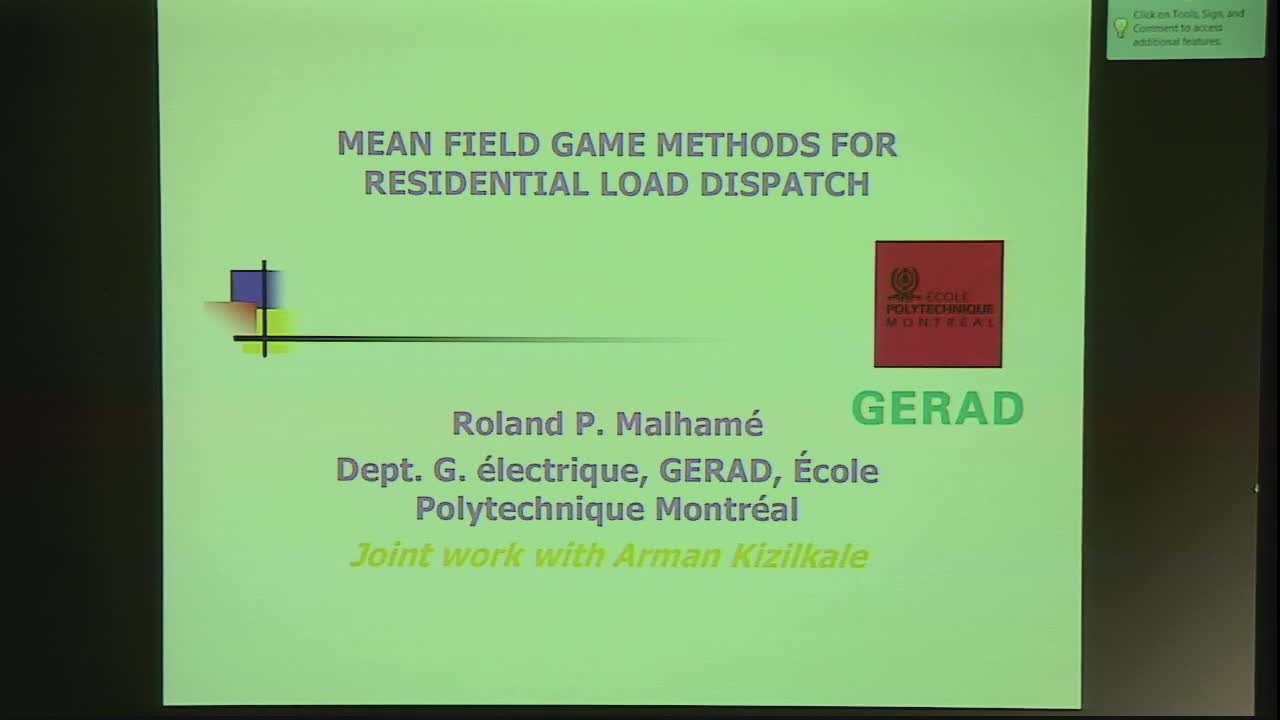Mean Field Game Methods for Deferrable Residential Load Dispatch
Presenter
May 10, 2016
Abstract
The increased levels of highly variable energy sources penetration such as wind and solar, in the generation mixes of current power systems have compounded the problem of maintaining the balance between generation and demand for electricity. In that context, the buffering of excess energy into energy sinks which can be called upon when generation is insufficient, has become an essential tool for securing the stability of power systems and minimizing reliance on expensive, fossil fuel based, fast responding generation units.
As many other researchers do, we consider the potential of classes of electric residential loads associated with energy storage, such as electric water heaters, and electric space heaters or air conditioners, coordinated to act as a giant distributed battery system for mitigating the variability of renewable sources. The challenges of a “load aggregator” are immense in that a large scale implementation of the concept would require reaching and coordinating up to millions of distributed control points, with an individual stochastic load character, while striving to minimize customers’ discomfort so as to continue counting on their contribution to the global effort. The recently developed theory of Mean Field Games has been identified as a potential tool for achieving the goal of a partially decentralized control of individual devices, within a hybrid control architecture involving both, a macroscopic level dictating global feasible targets, and a microscopic level to implement those.
While on the surface of things, the control is structured as a game, it is actually a mechanism design whereby: (i) Devices are associated with an individual cost function adequately tailored to achieve desirable system targets while minimizing local disturbance; (ii) Given highly aggregated collective loads information including an overall target (a mean device population temperature set point), the devices can locally compute a decentralized control law which leads the group to the desired target; (iii) Decentralization is achieved thanks to the predictability stemming from the law of large numbers. This essential feature minimizes the communication bandwidth requirements.
After a brief introduction to linear quadratic mean field games, we review the elemental stochastic load models used, the individual integral control in the mean field cost functions, and the resulting mean field Nash equilibria that lead to the device control laws. Simulations results are presented for a collection of controlled electric water heaters, illustrating the contribution of the decentralized control laws to smoothing of demand peaks and valleys, as well as their fairness insofar as customer contribution is concerned.
This is joint work with Arman Kizilkale. Simulations are extracted from Benoît Bourdel’s master thesis cosupervised by Frédéric Sirois and Roland Malhamé.
